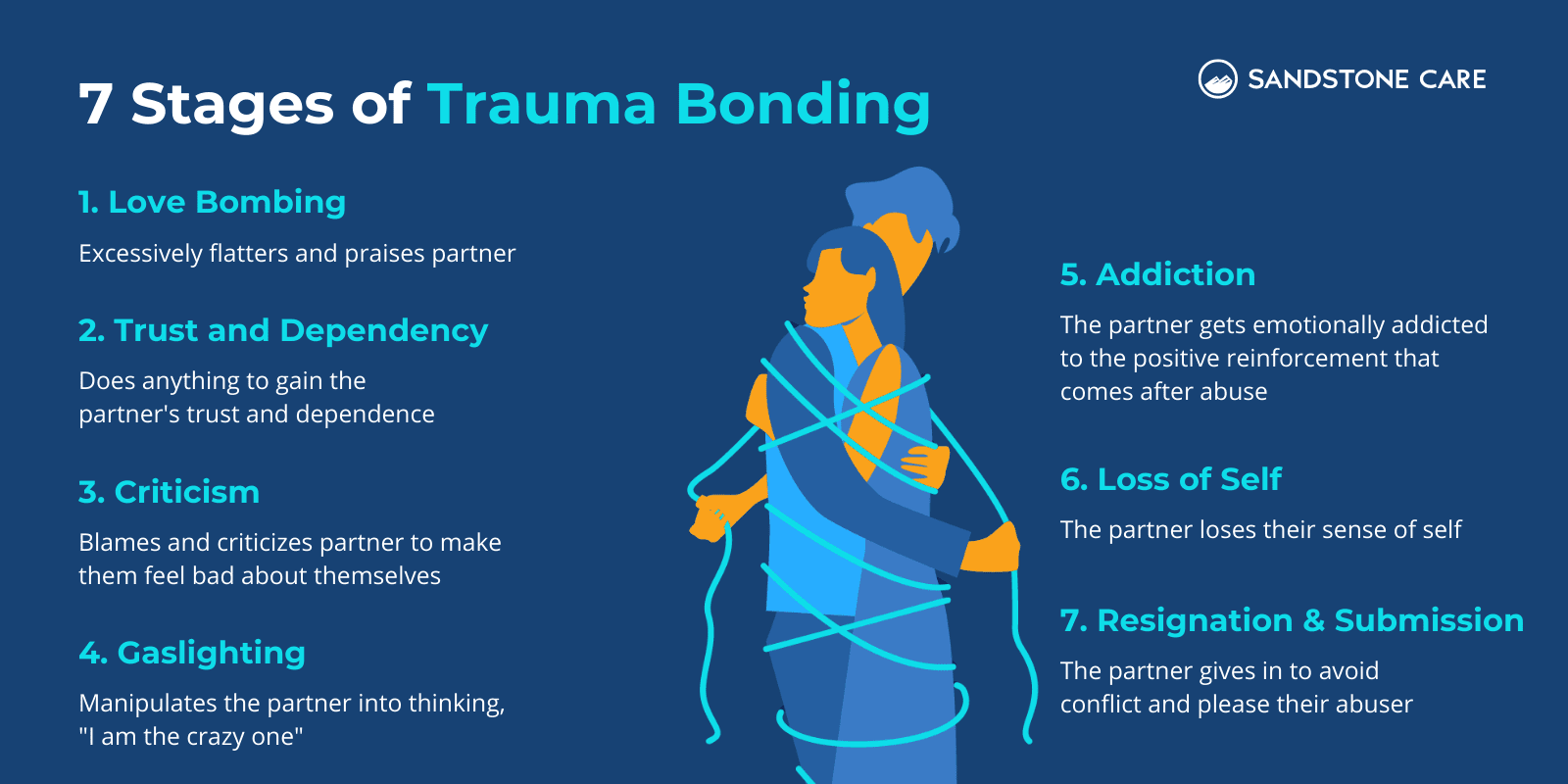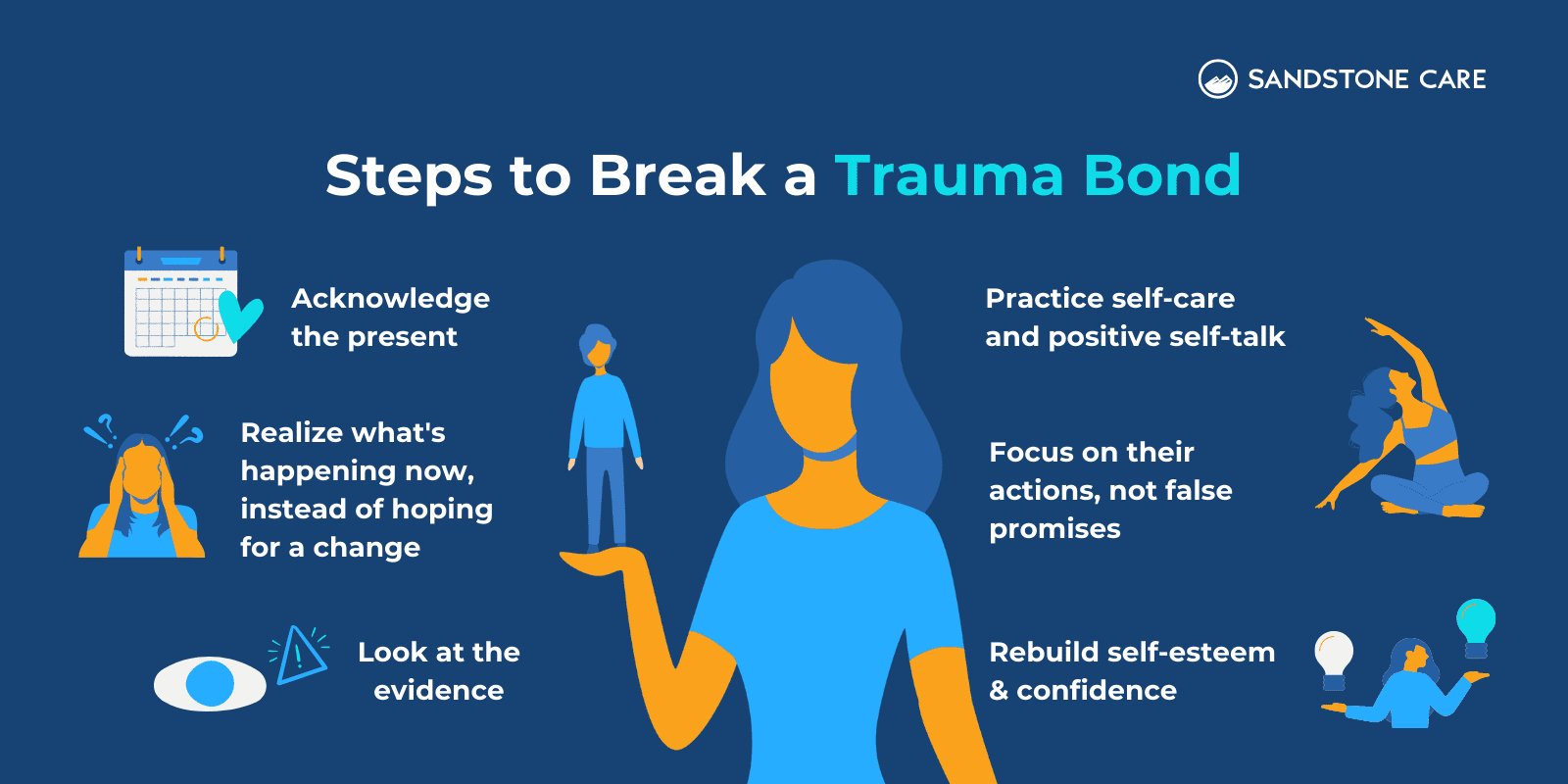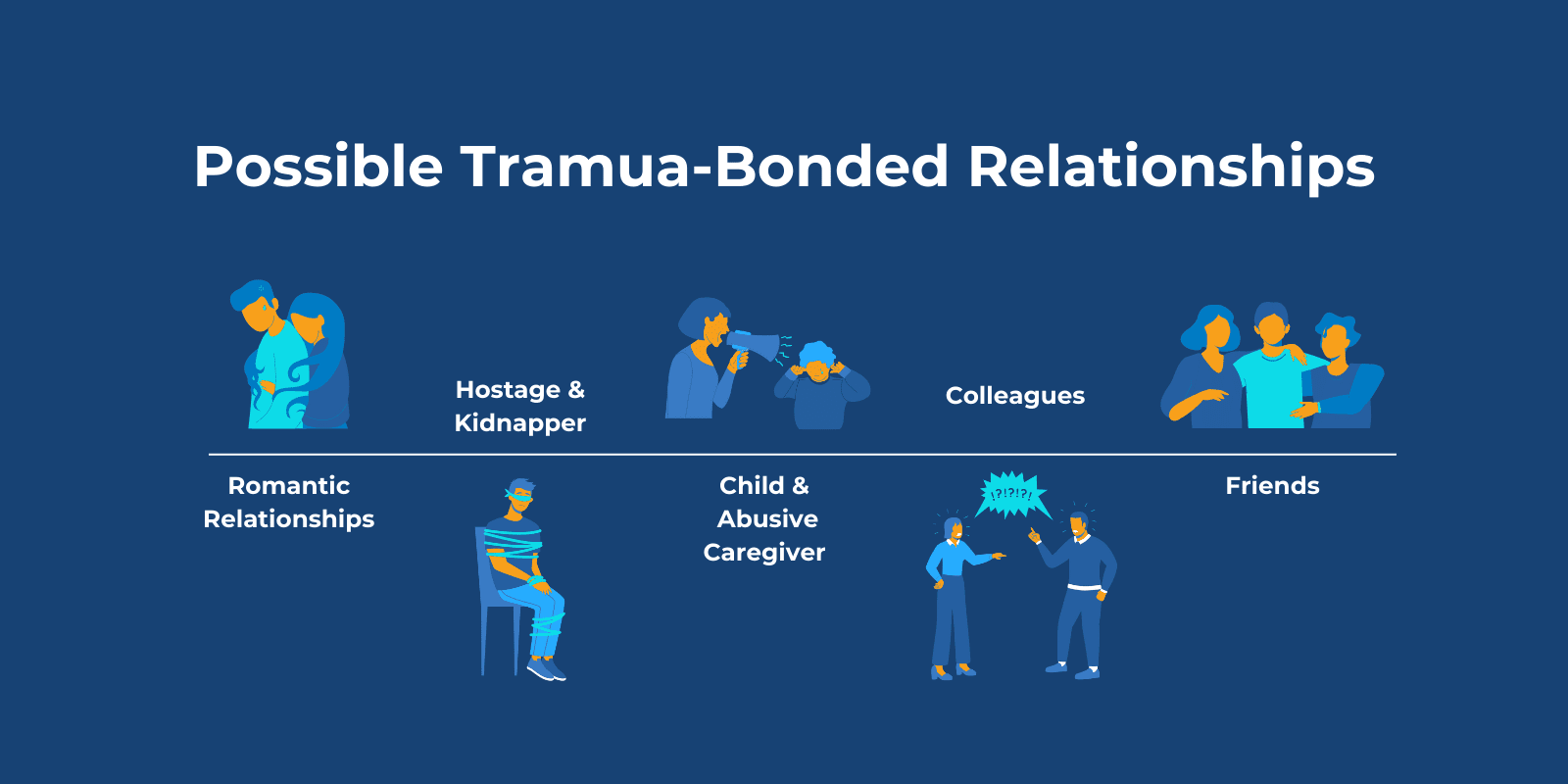Trauma bonding is a psychological phenomenon that occurs when a person develops strong emotional ties to someone who has caused them harm or trauma. It can be difficult to recognize the signs of trauma bonding, as the victim may feel a sense of loyalty or attachment to their abuser despite the negative impact on their mental and emotional well-being. Some common signs of trauma bonding include feelings of helplessness or powerlessness in the presence of the abuser, a strong desire to please the abuser and gain their approval, and an inability to break free from the toxic relationship despite knowing it is harmful.
Victims of trauma bonding may also experience feelings of guilt or shame for wanting to leave the abuser, as well as difficulty setting boundaries or asserting their own needs and desires. It is important for individuals who are experiencing trauma bonding to seek support from a therapist or counselor who can help them navigate the complex emotions and dynamics of the relationship and develop healthy coping strategies to break free from the cycle of abuse.

Intense Emotional Dependence
Intense emotional dependence can be a challenging and complex issue to navigate in relationships. When one person becomes overly reliant on their partner for emotional support, validation, and happiness, it can create a sense of imbalance and pressure within the relationship. This level of dependence can lead to feelings of insecurity, jealousy, and possessiveness, as the individual may fear losing their partner or being unable to cope without them. This can result in controlling behaviors, manipulation, and an inability to maintain boundaries. It can also prevent both individuals from growing independently and developing their own sense of self-worth and identity.
While it is natural to seek comfort and reassurance from a partner, relying too heavily on them for emotional fulfillment can be detrimental to both parties involved. It is important for individuals to cultivate their own emotional resilience, self-esteem, and coping mechanisms in order to maintain a healthy and balanced relationship. Communication, boundaries, and self-awareness are key components in addressing and overcoming intense emotional dependence in relationships. Seeking support from a therapist or counselor can also be beneficial in exploring the underlying issues and learning healthier ways of relating to oneself and others. Ultimately, finding a sense of balance and autonomy within a relationship is essential for fostering a strong and fulfilling partnership.
Cycle of Abuse and Reconciliation
The cycle of abuse and reconciliation is a complex and often vicious pattern that can occur within relationships. It typically involves a cycle of abuse, where one individual exerts power and control over another through various forms of manipulation, coercion, and violence. This can include emotional abuse, physical violence, sexual assault, and financial control. The victim may feel trapped in the relationship and may struggle to leave due to fear, shame, or a sense of dependency on the abuser. Despite the harm caused by the abuse, there can be periods of reconciliation where the abuser apologizes, shows remorse, and promises to change.
This can give the victim hope that the relationship can be salvaged and that the abuser will truly change their behavior. However, these periods of reconciliation are often short-lived, and the cycle of abuse tends to repeat itself. The abuser may revert back to their abusive ways, causing further harm and trauma to the victim. This cycle can be incredibly damaging to the victim’s mental, emotional, and physical well-being, and can perpetuate a cycle of abuse that can be difficult to break. It is important for individuals in abusive relationships to seek help and support from trusted friends, family members, or professionals in order to break free from the cycle of abuse and find safety and healing.

Self-Blame and Guilt
Self-blame and guilt are powerful emotions that can have a significant impact on an individual’s mental and emotional well-being. When we experience these feelings, we often internalize our mistakes and shortcomings, believing that we are solely responsible for the negative outcomes that have occurred. This can lead to a cycle of self-criticism and negative self-talk, which can be detrimental to our self-esteem and overall mental health. It is important to recognize that self-blame and guilt are normal human emotions that everyone experiences at some point in their lives. However, it is crucial to differentiate between taking responsibility for our actions and placing undue blame on ourselves.
It is important to acknowledge that we are not perfect and that making mistakes is a natural part of the human experience. By practicing self-compassion and forgiveness, we can begin to let go of feelings of guilt and self-blame, allowing ourselves to move forward and learn from our past experiences. Seeking support from friends, family, or a mental health professional can also be helpful in processing these emotions and developing healthier coping mechanisms. Ultimately, it is important to remember that self-blame and guilt are not permanent states of being, and with time and effort, we can work towards healing and self-acceptance.
Isolation from Others
Isolation from others can have a profound impact on an individual’s mental and emotional well-being. When someone is cut off from social interaction and support, they may experience feelings of loneliness, sadness, and even despair. Without the presence of others to provide companionship, understanding, and encouragement, a person may feel disconnected from the world around them. This sense of isolation can lead to a decline in mental health, as the individual may struggle to cope with their emotions and thoughts on their own.
Additionally, isolation can also have physical consequences, as the lack of social interaction may lead to a sedentary lifestyle and poor health habits. Without the motivation and support of others, it can be difficult for someone to maintain a healthy and active lifestyle. In extreme cases, prolonged isolation can even lead to feelings of hopelessness and a sense of being trapped in one’s own thoughts and feelings. It is important for individuals to seek out connections with others, whether through friendships, family relationships, or support groups, in order to combat the negative effects of isolation. By fostering relationships and staying connected to others, individuals can find comfort, support, and a sense of belonging that is crucial for maintaining their overall well-being.

Idealization and Devaluation
Idealization and devaluation are common defense mechanisms used by individuals to cope with feelings of insecurity and vulnerability. Idealization involves placing someone on a pedestal, viewing them as perfect and flawless in every way. This can be seen in romantic relationships, friendships, or even within a family dynamic. The individual may overlook any flaws or negative traits in the person they idealize, only focusing on their positive qualities. However, this idealized image is often unrealistic and can lead to disappointment when the individual inevitably falls short of these expectations.
On the other hand, devaluation involves the opposite extreme, where the individual sees someone as entirely negative and unworthy of their affection or attention. This can occur after a perceived betrayal or disappointment, causing the individual to completely disregard any positive qualities the person may possess. Devaluation can also be a way for the individual to protect themselves from further hurt or rejection by distancing themselves emotionally from the person in question.
Both idealization and devaluation can have damaging effects on relationships and the individuals involved. When someone is idealized, they may feel immense pressure to maintain the facade of perfection, leading to feelings of inadequacy and resentment. Conversely, being devalued can be incredibly hurtful and damaging to one’s self-esteem, causing feelings of rejection and unworthiness.
It is important for individuals to recognize when they are engaging in these defense mechanisms and to work towards a more balanced and realistic view of themselves and others. By acknowledging the complexities and imperfections of human nature, individuals can foster healthier and more fulfilling relationships based on mutual respect and understanding.
